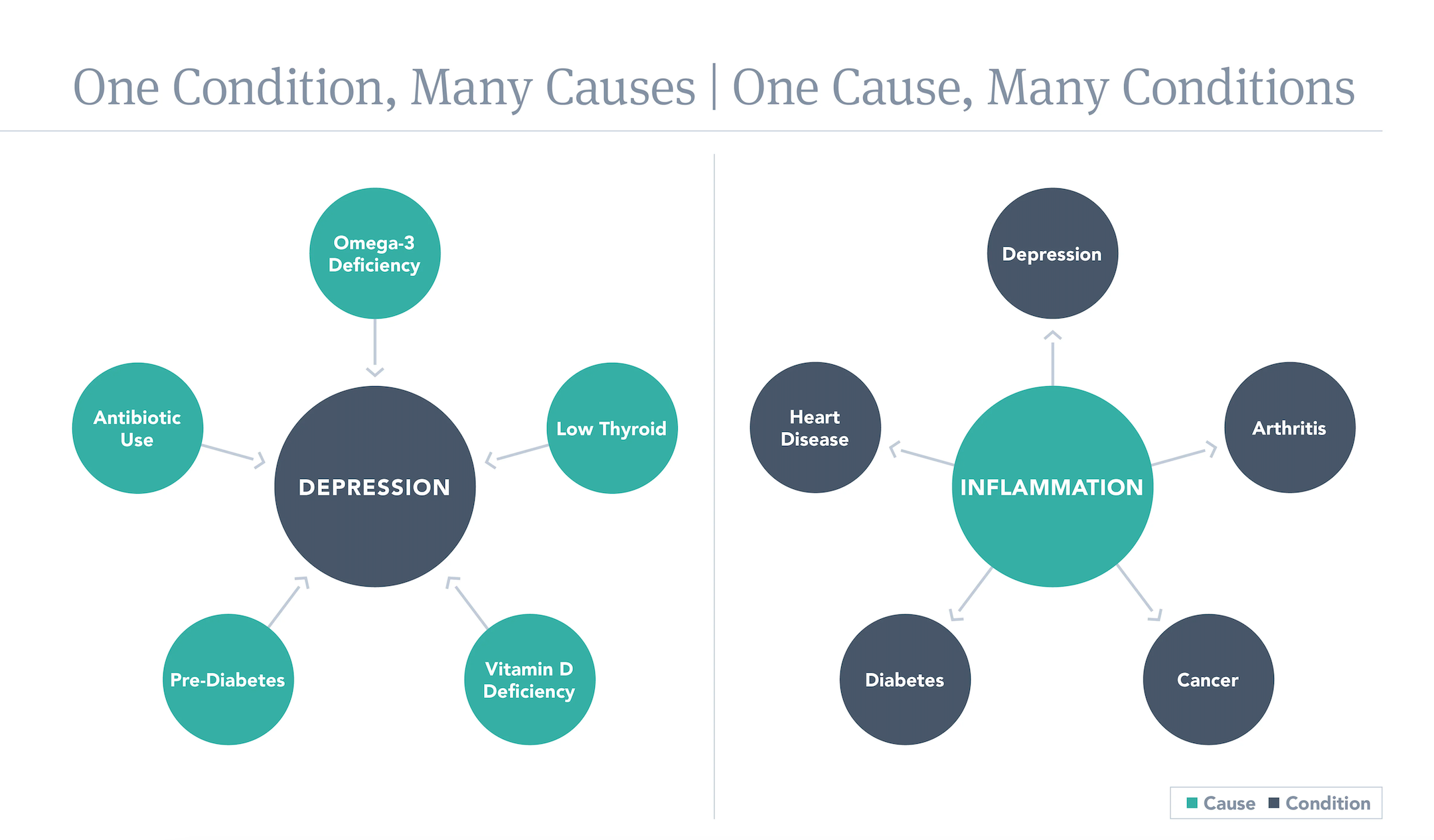Functional medicine examines the root causes of illnesses instead of simply treating symptoms. The medical model of functional medicine arose in the early 1990s by a group of thought leaders, which included clinicians, researchers and educators, who saw that a more individualized method of assessing the cause of disease based on nutritional science, epigenetics and genomics was essential to reverse disease.
With the functional medicine approach, clinicians take a holistic view of the person, understanding systems biology, integrative medicine, nutritional medicine, environmental medicine, and personalized medicine. Many factors affect a person’s health including triggers such as genetic or other predispositions and behaviors. Systems biology considers the body as an interconnected system of biological networks. Integrative medicine combines conventional medicine with alternative and complementary therapies to treat the whole person. Nutritional medicine recognizes the role that food and nutrients play in preventing and treating disease. Environmental medicine considers the factors of an individual’s environment including toxins, pollutants and stressors. And, finally, functional medicine emphasizes personalized, patient-centered care to create customized treatment plans.

Functional medicine sees that one condition can have many causes and that one cause can result in many conditions. Health can be complex with several contributing and underlying factors that take time to uncover and understand. Some of the intake processes that functional medicine uses include a functional medicine matrix, which examines the patients’ current clinical imbalances:
- Assimilation (digestion, absorption, microbiota)
- Defense and Repair (immune, inflammation, cellular renewal)
- Bioenergetics (mitochondrial function, cellular energy transport, tissue specific energetics)
- Transport (cardiovascular, hematological, respiratory and lymphatic functions)
- Communications (endocrine, neurotransmitters, signal transduction processes)
- Structural Integrity (subcellular membrane barriers to musculoskeletal function)
The matrix also examines modifiable lifestyle factors such as sleep and relaxation, exercise and movement, nutrition, stress and relationships as well as social and medical history including triggering events.
Dr. Jeffrey Bland, a biochemist and nutritional researcher, founded The Institute of Functional Medicine (IFM) in 1991, a nonprofit organization to advance the practice, education and research of functional medicine. The IFM has a certification program and other resources to help healthcare providers implement functional medicine into their practices. You can also become a member of the IFM and connect with other health care providers who practice functional medicine.
If you are a functional medicine healthcare provider or wish to complete certification in functional medicine, an important thing to consider is creating an environment in your practice where you can build a long-term relationship with your patients. Adequate time with your patients is necessary to get to the root of health issues and understand what interventions need to take place to improve health outcomes. A membership model allows for clinicians to have the time to build and maintain a relationship with their patients and establish a comprehensive and collaborative approach to reverse chronic illness and disease. This is crucial in leveraging any personalized treatment programs that intervene on dysfunctional behaviors. A trusting relationship that gives patients the safety and the time to share personal struggles is an ideal way for a clinician to effectively use a functional medicine approach.
At Hint, we are dedicated to powering the software that scales membership models in healthcare delivery. Learn more about Hint Core and transition your patients to members easily. Hint also has free educational resources for customers to help grow your practice including DPC Accelerator.
Sources:
The Institute of Functional Medicine
"Functional Medicine Past, Present, and Future" - National Library of Medicine

